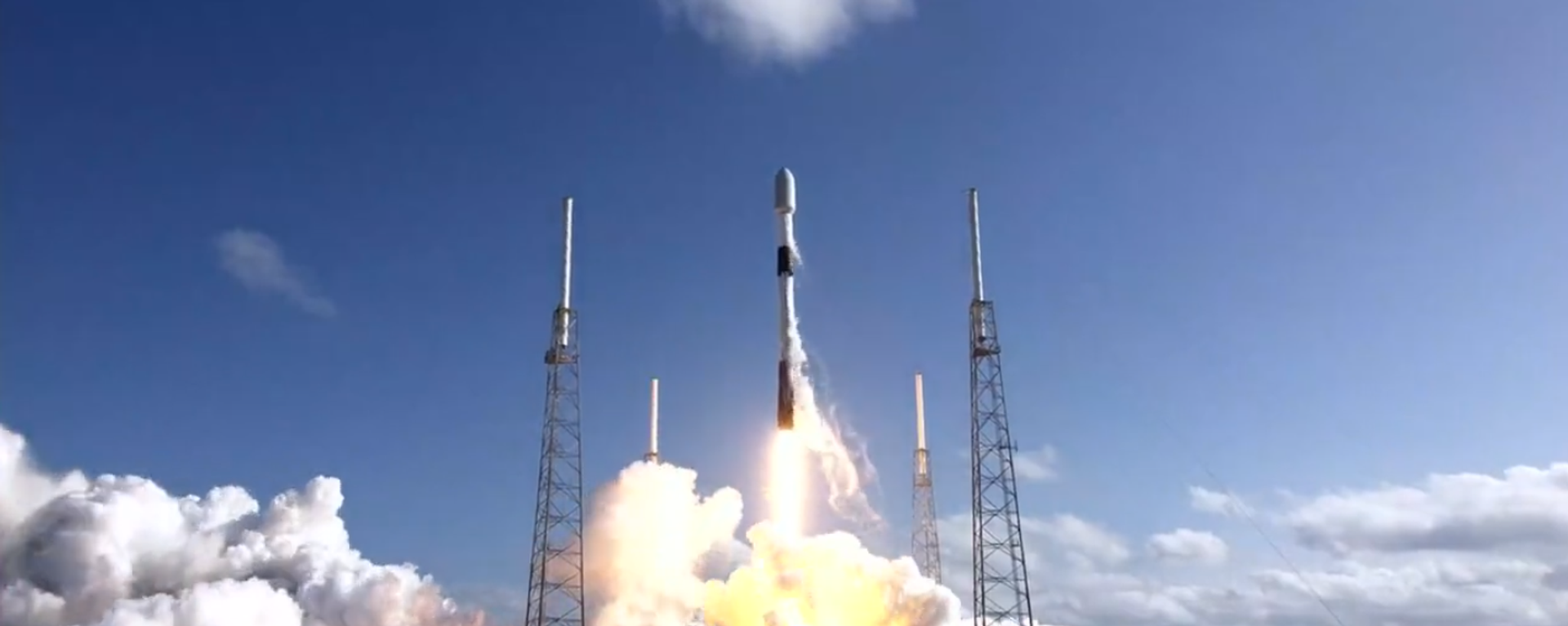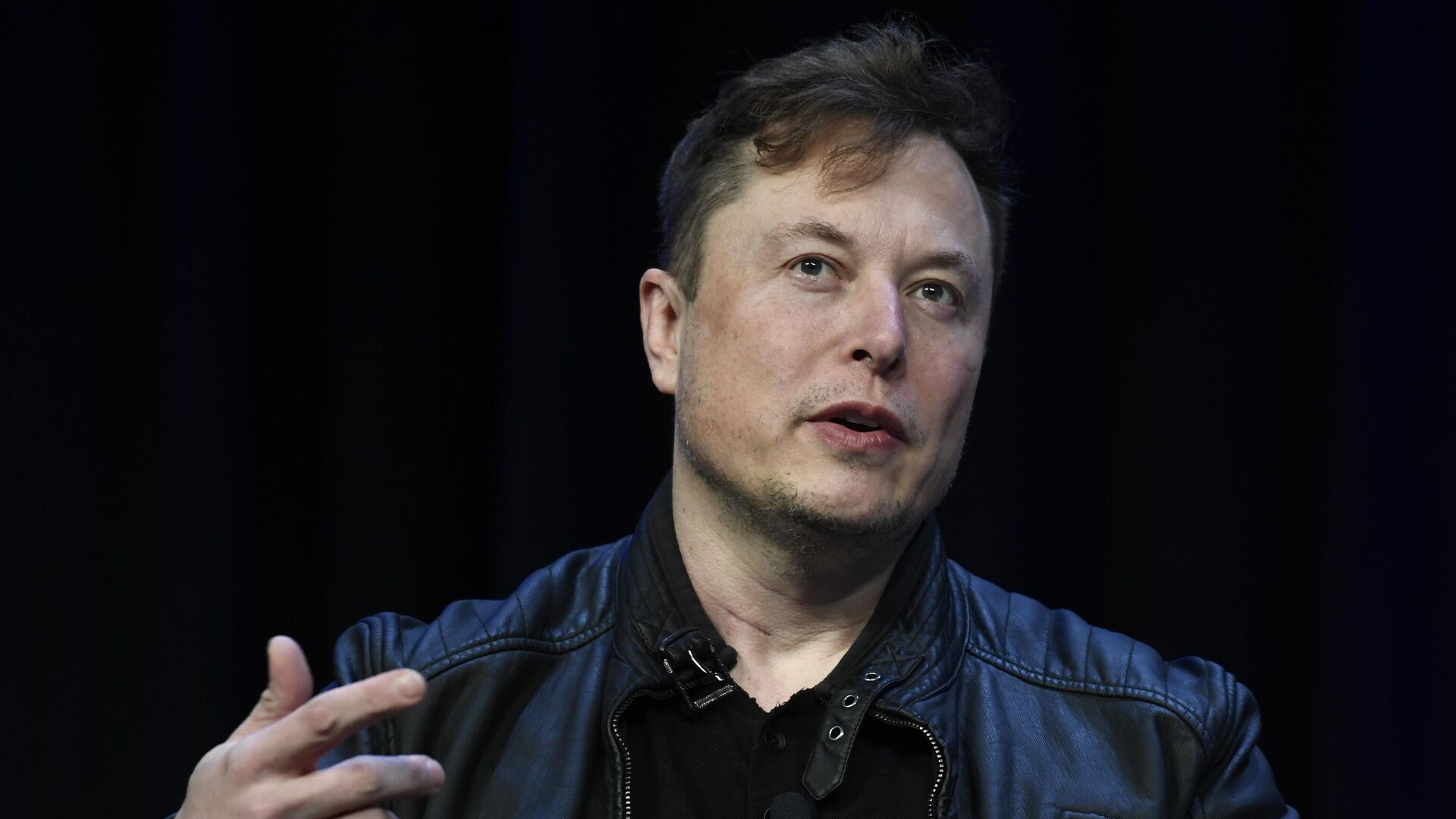https://sputnikglobe.com/20231214/fcc-commissioner-biden-gave-federal-agencies-green-light-to-target-elon-musk-1115565308.html
FCC Commissioner: Biden 'Gave Federal Agencies Green Light' to Target Elon Musk
FCC Commissioner: Biden 'Gave Federal Agencies Green Light' to Target Elon Musk
Sputnik International
FCC Commissioner Brendan Carr slammed the agency's decision to withdraw an $866 million subsidy to Starlink to provide broadband internet access to 640,000 rural homes, accusing the Biden administration of targeting Elon Musk.
2023-12-14T00:03+0000
2023-12-14T00:03+0000
2023-12-14T00:00+0000
americas
brendan carr
elon musk
joe biden
federal communications commission (fcc)
biden administration
starlink
starshield
x (formerly twitter)
https://cdn1.img.sputnikglobe.com/img/07e7/0a/0b/1114085233_0:0:3072:1728_1920x0_80_0_0_f248447cdea24c193bec2ad403dd1d00.jpg
Writing in fiery dissent, FCC Commissioner Brendan Carr accused the agency of targeting Elon Musk and his businesses at the behest of the Biden administration.Carr began his dissent by pointing out that US President Joe Biden told reporters in early November that Musk “is worth being looked at” after his purchase of Twitter, since renamed X. It notes that when Biden was pressed by a reporter on what ways the government would look into at Musk, the president responded “there’s a lot of ways.”"President Biden gave federal agencies a green light to go after him [Musk]," Carr wrote.Carr then notes that the Department of Justice, the Federal Aviation Administration, the Federal Trade Commission, the National Labor Relation Board, the US Attorney for the Southern District of New York and the US Fish and Wildlife Service have all opened investigations into Musk or his businesses since Biden made those comments.The subsidy was planned to fund Starlink and help bring broadband internet to 640,000 rural homes in 38 states.In his dissent, Carr stated the FCC applied a novel new standard specifically for Starlink, ostensibly over concerns about how its low-Earth-orbit satellites (LEOs) made it impossible to pass and then applied that standard only to Starlink. He contends the decision by the FCC “cannot be explained by any objective application of laws, facts, or policy.”According to Carr, the FCC required that Starlink show it is currently providing the required 100 megabits per second (Mbps) download and 20 Mbps upload speed to the 640,000 homes, rather than the previous standard of providing that service to at least 40% of those homes by December 31, 2025.The commissioner noted that none of the other companies awarded contracts by the FCC in 2020 are required to meet that standard and that if they were, none of them would pass it. He further argued that looking at what Starlink is currently providing in those areas “would be like watching the pace lap of a NASCAR race and then predicting that the cars will never exceed 50 MPH.”Had the FCC looked at more relevant data sets, Carr argued, it would have seen that Starlink is certainly capable of meeting the speed benchmark by 2025, noting Starlink now has a median download speed greater than 100 Mbps in 14 European countries. That, along with the number of new satellites in orbit and Starlink’s “detailed descriptions of its plan” would provide a “much richer and probative set of data” that would “confirm that Starlink is on track to meet its FCC obligations.”The decision to deny Starlink, Carr argued, will hurt the rural communities it planned to serve. “By reversing course, the FCC has chosen to vaporize that commitment and replace it with . . . nothing,” Carr wrote [ellipsis in original]. “That’s a decision to leave families waiting on the wrong side of the digital divide when we have the technology to get them high-speed service today.”As further evidence that the federal government does not have real concerns about Starlink’s LEOs, Carr highlighted the Pentagon recently awarded a “multi-million-dollar agreement” with Elon Musk’s SpaceX for a military adaptation of Starlink known as Starshield, “but the government continues to take regulatory action against his businesses, nonetheless.”“The Biden Administration is choosing to prioritize its political and ideological goals at the expense of connecting Americans. We can and should reverse course,” Carr concluded.
https://sputnikglobe.com/20231208/good-news-spacexs-starlink-service-clears-us-military-tests--1115467386.html
americas
Sputnik International
feedback@sputniknews.com
+74956456601
MIA „Rossiya Segodnya“
2023
News
en_EN
Sputnik International
feedback@sputniknews.com
+74956456601
MIA „Rossiya Segodnya“
Sputnik International
feedback@sputniknews.com
+74956456601
MIA „Rossiya Segodnya“
starlink rural homes, broadband access in rural america, fcc harassing elon musk, biden administration targets elon musk
starlink rural homes, broadband access in rural america, fcc harassing elon musk, biden administration targets elon musk
FCC Commissioner: Biden 'Gave Federal Agencies Green Light' to Target Elon Musk
The Federal Communications Commission (FCC) announced on Tuesday that it denied the Elon Musk-owned Starlink’s appeal and will not award the company a $866 million subsidy from the Universal Service Fund meant to expand broadband access to rural areas.
Writing in fiery dissent, FCC Commissioner Brendan Carr accused the agency of targeting Elon Musk and his businesses at the behest of the Biden administration.
Carr began his dissent by pointing out that US President Joe Biden told reporters in early November that Musk “is worth being looked at” after his purchase of Twitter, since renamed X. It notes that when Biden was pressed by a reporter on what ways the government would look into at Musk, the president responded “there’s a lot of ways.”
"President Biden gave federal agencies a green light to go after him [Musk]," Carr wrote.
Carr then notes that the Department of Justice, the Federal Aviation Administration, the Federal Trade Commission, the National Labor Relation Board, the US Attorney for the Southern District of New York and the US Fish and Wildlife Service have all opened investigations into Musk or his businesses since Biden made those comments.
The subsidy was planned to fund Starlink and help bring broadband internet to 640,000 rural homes in 38 states.
In his dissent, Carr stated the FCC applied a novel new standard specifically for Starlink, ostensibly over concerns about how its low-Earth-orbit satellites (LEOs) made it impossible to pass and then applied that standard only to Starlink. He contends the decision by the FCC “cannot be explained by any objective application of laws, facts, or policy.”
According to Carr, the FCC required that Starlink show it is currently providing the required 100 megabits per second (Mbps) download and 20 Mbps upload speed to the 640,000 homes, rather than the previous standard of providing that service to at least 40% of those homes by December 31, 2025.

8 December 2023, 00:09 GMT
The commissioner noted that none of the other companies awarded contracts by the FCC in 2020 are required to meet that standard and that if they were, none of them would pass it. He further argued that looking at what Starlink is currently providing in those areas “would be like watching the pace lap of a NASCAR race and then predicting that the cars will never exceed 50 MPH.”
Had the FCC looked at more relevant data sets, Carr argued, it would have seen that Starlink is certainly capable of meeting the speed benchmark by 2025, noting Starlink now has a median download speed greater than 100 Mbps in 14 European countries. That, along with the number of new satellites in orbit and Starlink’s “detailed descriptions of its plan” would provide a “much richer and probative set of data” that would “confirm that Starlink is on track to meet its FCC obligations.”
The decision to deny Starlink, Carr argued, will hurt the rural communities it planned to serve. “By reversing course, the FCC has chosen to vaporize that commitment and replace it with . . . nothing,” Carr wrote [ellipsis in original]. “That’s a decision to leave families waiting on the wrong side of the digital divide when we have the technology to get them high-speed service today.”
Carr also argued that if the government ever decides to provide those areas with high-speed internet access, it will cost taxpayers significantly more. “[I]t will cost us orders of magnitude more money to do so [...] extending high-speed fiber lines to these same areas will likely cost somewhere in the neighborhood of $3 billion based on past bidding patterns and analysis – more once you start accounting for inflation.”
As further evidence that the federal government does not have real concerns about Starlink’s LEOs, Carr highlighted the Pentagon recently awarded a “multi-million-dollar agreement” with Elon Musk’s SpaceX for a military adaptation of Starlink known as Starshield, “but the government continues to take regulatory action against his businesses, nonetheless.”
“The Biden Administration is choosing to prioritize its political and ideological goals at the expense of connecting Americans. We can and should reverse course,” Carr concluded.



